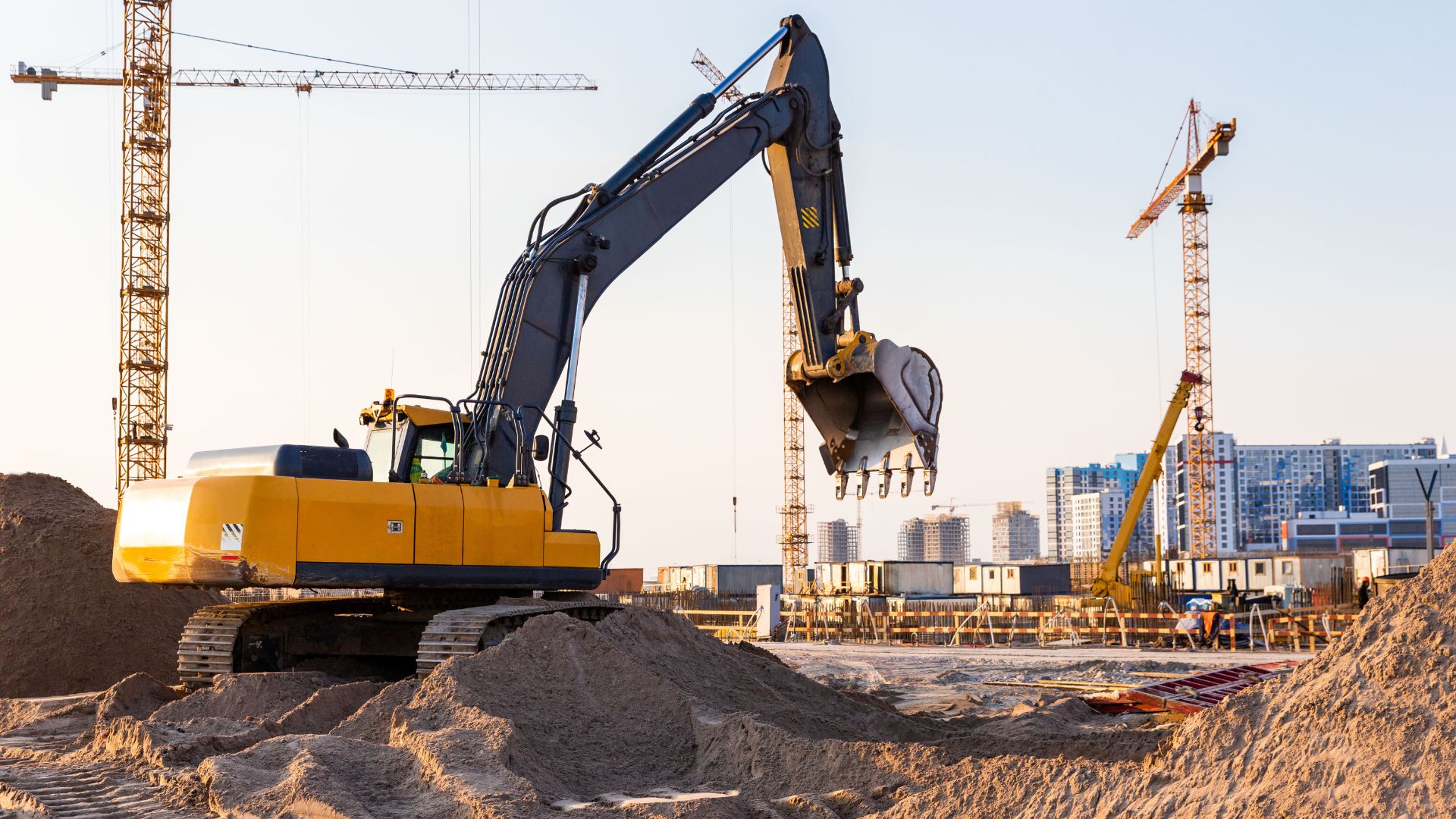Infrastructure Finance Update – December 2023
 In this month’s infrastructure update, the national and international financial institutions such as the ADB, JICA, AIIB and BoB are looking to increase project and policy financing for infrastructure projects. The measures also include launching of a new private fund and infrastructure bonds to raise funds for various urban infrastructure and other projects. City level authorities are also considering launching new bonds to raise funds. For details please read below…
In this month’s infrastructure update, the national and international financial institutions such as the ADB, JICA, AIIB and BoB are looking to increase project and policy financing for infrastructure projects. The measures also include launching of a new private fund and infrastructure bonds to raise funds for various urban infrastructure and other projects. City level authorities are also considering launching new bonds to raise funds. For details please read below…
The Asian Development Bank (ADB) and Japan International Cooperation Agency (JICA) have agreed to launch a new fund aimed at boosting private infrastructure in the Asia-Pacific. The new fund, named the Leading Asia’s Private Infrastructure Fund 2 (LEAP 2), with a capital of up to US$ 1.5 billion provided by JICA, with the ADB acting as fund manager and administrator. It will support projects in India, Indonesia, Uzbekistan, and Vietnam, including reducing carbon emissions, healthcare and education.
According to a statement from the Ministry of Finance, India signed a US$ 400 million policy loan agreement with the Asian Development Bank (ADB) to create high-quality urban infrastructure, improve service delivery, and promote efficient governance systems. The agreement envisages integrated planning reforms to control urban sprawls and foster systemic and planned urbanisation through enhancing the entire ecosystem of legal, regulatory, and institutional reforms. The earlier sub-programme 1, approved in 2021 with the financing of US$ 350 million, established national-level policies and guidelines to improve urban services, while the latest sub-programme 2 will support investment planning and reforms at the state and urban local body (ULB) levels. Such as operationalising the Atal Mission for Rejuvenation and Urban Transformation (AMRUT) 2.0 for universal access of water supply and sanitation. ULBs will promote modernisation of building bylaws, land pooling, urban agglomeration, and comprehensive urban mobility planning through transit-oriented development to help cities become well-planned centres of economic growth. Cities will be incentivised to become creditworthy through various reforms on enhancing their revenues such as property taxes and user charges, improve their efficiencies and rationalize their expenditures. This will substantially help cities to mobilise innovative financing such as commercial borrowings, issuance of municipal bonds, sub sovereign debts, and public–private partnerships to bridge significant deficits in urban infrastructure investments.
India has emerged as the biggest project funding market for the Asian Infrastructure Investment Bank (AIIB) looking the immense scale of infrastructure development taking place across the country. AIIB has to date funded sovereign Indian infrastructure projects to the tune of US$ 10 billion, more than 20 per cent of AIIB’s total infrastructure project funding. For FY 2023, the bank has lent more than US$ 1.3 billion including US$ 438 million for the Chennai Metro Rail Phase 2 Project and US$ 250 million for the Second Dam Rehabilitation and Improvement Project.
The public sector bank, Bank of Baroda is looking to tap the corporate bond market to raise funds via infrastructure bonds in the near future. The lender aims to raise around Rs 40 billion (US$ 480.93 million) to Rs 50 billion (US$ 601.16 million) via the first tranche of infrastructure bonds. Earlier, it received approval from it’s board to raise Rs 100 billion via such instruments. The issuance is when other lenders have stepped up borrowing via infrastructure bonds, raising Rs 310 billion in the first half of this FY, crossing last FY’s total of Rs 296 billion.
The Parliamentary Standing Committee on transport, tourism and culture, has pulled up the Ministry of Road Transport and Highways on shortfall in monetisation of assets and delay in projects due to issues related to land acquisition. In its report, submitted in the Parliament, the committee noted that there is a persistent shortfall in achieving the targets fixed by the ministry in a financial year under the National Monetisation Pipeline.
The Ministry of Finance has asked the Ministry of Road Transport and Highways to not create any new liability under the Bharatmala programme before obtaining the approval of the revised cost. There will be no more approval and bidding out of highway projects under the flagship programme till the scheme gets fresh Cabinet approval. Putting uncertainty on the fate of around 8,000 km of NH stretches in in the country. It is noteworthy that the cost of Bharatmala programme has doubled to Rs 10.6 lakh crore while the cabinet had approved it with an estimated expenditure of Rs 5.3 lakh crore. However, the revised cost has not yet been approved as inter-ministerial discussions are still on. Meanwhile, the government is likely to continue provide Capital Expenditure requirements for the NHAI from budgetary support. Similarly for the railways, the government is likely to fund projects from the budgetary allocations.
The Yamuna Expressway Industrial Development Authority (YEIDA) has initiated a process to raise Rs 10,000 crore through infrastructure and municipal bonds for its upcoming projects. These include the rapid rail corridor, industrial and information technology parks, sports facilities, roads, bridges and the international airport. Land acquisition and infrastructure development for industrial parks will be earmarked substantial portion of funds raised. The financial demands for the rapid rail connectivity between Noida International Airport in Jewar and Delhi poses a significant challenge for the Authority. Infrastructure and municipal bonds are debt instruments under which the investor is repaid a fixed amount of principal with interest over a period decided by the agency issuing it. The money raised is then used to fund city development or maintenance projects.
It has been reported that several projects related to the Nashik Municipal Corporation (NMC) and other authorities for the city are delayed. The projects include Neo Metro Rs 2,100 crore, multi-modal transport hub Rs 1,500 crore, outer ring road Rs 2,500 crore, two bridges Rs 250 crore, facelift of Dadasaheb Phalke Smarak, Namami Goda project Rs 2,700 crore, IT park project of MIDC on 100 acres, new 300-bed hospital in Panchvati and smart parking. The Union finance minister had announced the Nashik Neo metro project while presenting the Budget for the financial year 2021-22, making a provision of Rs 2,092 crore. But not much progress has been reported so far.
It has been reported that infrastructure projects of Rs 15,000 cr have been taken up under Gati Shakti Mission. Including two railway line projects – one, a greenfield railway line spanning 127 km in Jharkhand aiming to connect the existing coal blocks. Two, a brownfield railway line in Jharkhand and West Bengal, in the industrial belt of Burnpur, Durgapur, and Asansol. Two road projects with a combined road length of more than 300 kms were also discussed. One, in Chhattisgarh and Jharkhand, aiming to uplift the socio-economic conditions in tribal districts. Two, a road project, situated in Assam and Mizoram, offers alternative connectivity route in the region. A Rail Sagar Corridor programme by the Ministry of Railway was also taken up with the objective of increasing the Rail and ports-based cargo share by 2031, improving modal shift for Railways.
The Government of Odisha has approved 19 industrial projects of Rs 4,804 crore likely to generate 17,553 jobs. The State-Level Single Window Clearance Authority has approved the projects in apparel and textiles, steel downstream, paint (chemical), plastics, packaging/metal downstream, chemicals, food, beverage and allied sectors, steel (ferroalloys), IT infrastructure, agro processing, renewable energy/circular economy and infrastructure.
It has been reported that the industry wish list for interim budget for 2024-25 includes extension of the concessional tax rate of 15% for domestic infrastructure companies and non-corporate taxpayers such as limited liability partnerships and trusts, exemption from withholding tax on payment of interests on overseas bonds having maturity period of more than five years, and others. Government had allowed all new companies set up after October 1, 2019, in the manufacturing sector and electricity generation to avail corporate tax rate of 15%. Industry bodies including Assocham and PHD Chamber of Commerce and Industry want this concession to be extended to other sectors including infrastructure.
The United Nations Climate Change Conference (COP28) in Dubai, the governments unveiled the long-anticipated initiatives to drive climate action in cities, spanning buildings, waste, transport, water, and nature as the Conference enters the second week. Over 40 ministers met during the COP28 Multilevel Action, Urbanization, Built Environment and Transport Day, held in partnership with United Nations Human Settlements Programme (UN-Habitat) and the UN Climate Change High-Level Champion.
The Eastern Dedicated Freight Corridor (EDFC) is set to be ready for commercial operation from November with the successful trial run, the entire 1337-km-long. The first freight train trial was conducted on the 401-km-long route between New Sahnewal and New Khurja section in October. The EDFC starts from Sahnewal near Ludhiana (Punjab) and passes through Punjab, Haryana, Uttar Pradesh and terminates at Sonnagar in Bihar. The Corridor will traverse through four states including Uttar Pradesh, and Haryana. The EDFC was completed at an estimated cost of Rs 51,000 crore mainly coal transportation to power plants.
It has been reported that the railway projects in the North eastern states have covered a total length of 1909 km at a cost of Rs 81,941 crores whereas a total of 4,950 km of National Highway network has been developed by the Ministry of Road Transport and Highways during last nine years in the North eastern region.
Centre for Financial Accountability is now on Telegram and WhatsApp. Click here to join our Telegram channel and click here to join our WhatsApp channel and stay tuned to the latest updates and insights on the economy and finance.

